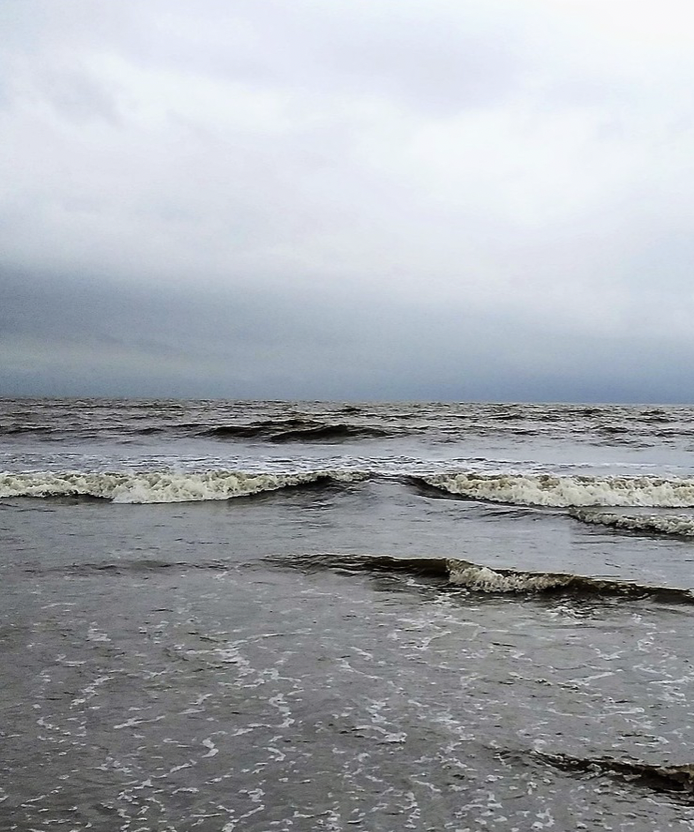By REWA ZEINATI
Water.
At the shore we don’t build anything. Behind our sunglasses, our eyes dart in every direction. A man carries a sandcastle on his back. A fish. Or is that a tattoo of a fairytale palace? His arms are full sleeves of ink. Maybe he’s been working in the financial district for years. Maybe he’s only here for three days.
In the water we talk salaries and offices and how much saltier this sea is compared to ours. Ours? We talk about hunger, the likelihood of lunch. On my left, Burj Al Arab juts forth its belly of glass and steel.
My friend is about to lose her bikini top in the mess of waves. It is June. It is October.
Sun.
The sun glowers, turns the ceiling white. Our skin is taut with fever. We take turns spreading tanning oil. We compare the brands of our inexpensive bottles, SPF ranging from low to zero. The less protection the better. There is a boast of muscles here, and thin plastic tents, umbrellas of all sizes, and traditional saris. Local men in white kandoras and women in long black dresses and veils. Surfers rush into the water, and South Asian laborers, fully clothed. The beach forbids no one. Unlike the city.
On either side, police cars are parked and policemen wait inside their cars.
Sand.
A man wears a suit to the beach. No, a man in a suit walks along the beach. Perhaps that is more accurate.
Suddenly I am knee-deep in politics. Maybe she shouldn’t be wearing a bikini revealing her bulging middle they say, maybe he should wax the forest of black hairs concealing his entire back.
The rest is ordinary.
Friday.
I tell myself, I’ll avoid the Friday crowd; its loudspeaker shout of prayers, its beach-cruising cars, its giant tour buses, its boorish curiosity.
A strict line divides the sea from the bleak sky of summer, the healthy blue of winter. The whole city waits for this day. As the hum of prayer disappears into the wind, we hurry toward the beach. We soak in what we lack of natural light and sweat during the working week; our skin too used to air conditioners and sanitized spaces.
Salt.
This is the water of the Arabian Sea: lukewarm in summer and cool in winter. I think of those who have come here, to this very spot, where I sit and look out into the water. How many languages have been spoken here? Before fabricated prayer, before steel. There is a kind of healing that happens. It transcends the sea minerals or the significance of water. I’m convinced that it’s the blend of stories of fishermen and dreamers accumulated over the years that echo in the wind, freeing all of us.
Home.
A family huddles together at the tip of the shore. They stand, fully clothed, with their backs against the beach and smile to the camera. They stand for a few minutes, taking a few shots, hoping to perfect the moment in this city of light.
I walk the length of the shoreline, picking large and small shells off the sand. I wash them in saltwater. I carry them home to fill up the sink.
Rewa Zeinati is the recipient of the 2020 Edward Stanley Award for poetry, the founding editor of Sukoon magazine, and the author of the poetry chapbook Bullets & Orchids. Her poems and essays are found in a number of national and international journals and anthologies. She lives and works in Metro Detroit.




